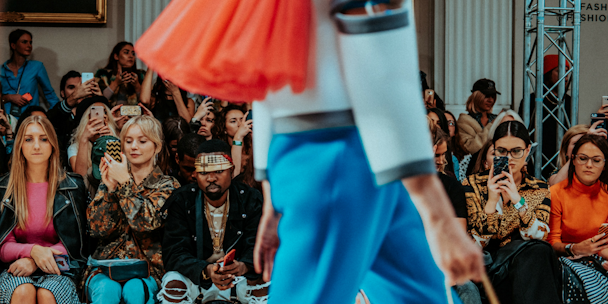The future of marketing luxury: HPS Group on what to expect in the luxury market
As the luxury marketplace evolves, then so do the opportunities for brands to mastermind inventive offerings to successfully attract new customers without diluting their exclusivity.

"London Fashion Week 2017 saw customers viewing and buying collections live on their mobiles"
Today’s consumers live in an on-demand world with expectations of immediacy; no longer reserved for mass market goods and services, this has infiltrated the luxury marketplace where waiting for a rare or exclusive product or event is becoming increasingly scarce. On-demand extravagance is real.
The emergence and dominance of mainstream services like Uber and Amazon Prime proves this re-wiring of expectations, but it’s become equally accepted to assume access to an exclusive dinner party or catwalk show at the drop of an immaculately tailored hat. While it presents a logistical challenge, it opens the door for playful, luxury demonstration of such immediacy.
London Fashion Week 2017 saw customers viewing and buying collections live on their mobiles, proving the demand for remote accessibility to premium goods. For those who do venture to physical stores, a selection of premium Bond Street retailers, including Jimmy Choo, Aspinal and Victoria Beckham, have signed up to Dropit – a carry-home service that makes it even easier for customers to relieve themselves of their wealth in London’s West End. The door-to-door courier service caters for 66 retail outlets, all in the name of providing a stress-free shopping experience for customers while collecting valuable shopping habit data for brands. Such technology and end-to-end services will become commonplace as brands’ savviness on customer needs increases.
Many traditional brands, including Gucci, offer engaging digital content on the wider industry. Next level customer engagement involves delivering immersive experiences and demonstrating accessibility to open face-to-face conversations outside their digital space and stores.
Regardless of the significant changes afoot in the marketplace, the greatest challenge for brands remains differentiation. Brands must show convenient connection points with busy lifestyles, demonstrating edginess that surprises and delights.
Finding new and different experiences is increasingly sought after, with one of the world’s most iconic hotels, Beverly Wilshire in Los Angeles, now offering rooftop glamping starting at $3,500 a night. Unsurprisingly it’s not your average glamping experience.
Offering membership of an elite club feeds the growing need for status. Porsche China’s integrated WeChat campaign ‘Your VIP Day’ allowed customers to upgrade their car service with a personal luxury treat and share it with their friends online. The treat itself was unimportant relative to the shareability of their Porsche ownership. Similarly, becoming a member of a club with as few members as possible holds great attraction. Blue Marble offers extraordinary ‘money can’t buy’ travel experiences, such as diving to the Titanic – extremely shareable kudos.
The notion of curation rather than single-minded brand promotion is becoming ever popular, enabling brands to demonstrate flair, inventiveness and personality. As the experience economy matures, fuelled by social media and the race for status, the luxury market has become increasingly aligned with affluent yet mainstream consumers. To connect with those that want to be the first, the sharer of the next big thing, the early adopter, brands must embrace these brand advocates and utilise them to positively influence their burgeoning social networks.
With high expectations, these ‘Henrys’ deliver the greatest opportunity yet for brands to deliver innovative products, services and experiences to capture the affluent masses.
Emma Fisher is associate director at HPS Group.
This article was originally published in The Drum Network luxury special. You can get your hands on a copy here. To be featured in the next special focused on the charity sector, please contact stephen.young@thedrum.com.
Read more from our luxury special on whether luxury retailers can recreate the in-store experience online.
Content by The Drum Network member:

HPS Group
HPS is a full-service marketing group in the truest sense of the phrase.
With a collection of specialist businesses that together cover every stage of the...

